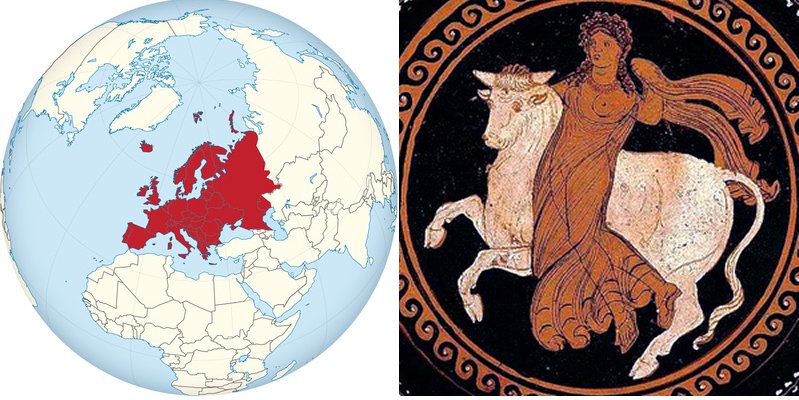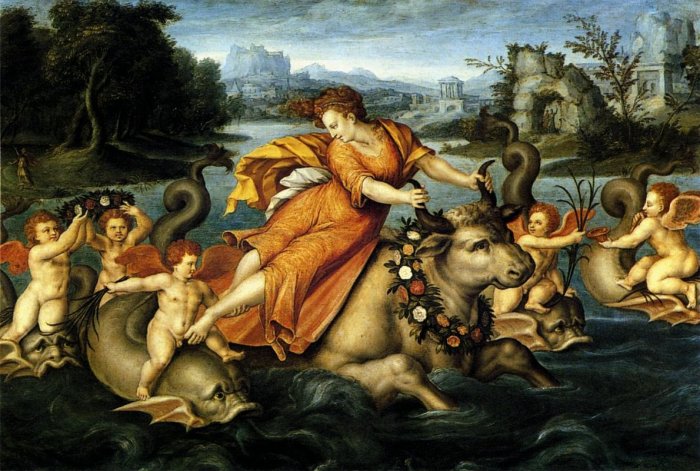Why Is Europe Called Europe?
AncientPages.com - We are all familiar with the names of the continents and their geographic location, but not everyone knows the history behind these names.
If you are a European, you do not spend much time contemplating on your continent's name and if you are living in another part of the world, you simply take for granted that Europe is - yes, Europe.
But when and how did we name the continent Europe? A possible answer to this question can be found in the history of ancient Greece.
About 700 B.C. it was common to refer to the mainland of Greece as Europe.
The word Europe is derived from the Greek words "eurys" and "ops". "Eurys", which means "broad" and was a religious synonym for the Earth and "ops" means "face". Europe means thus "face of Earth".
At that time, Greek religion was influenced by the religions of the Middle East in which the Earth played a vital role in fertility worship.
See also:
How Greenland Got The ‘Wrong’ Name Thanks To Viking Erik The Red
Chocolate Was Invented In Mesoamerica 1900 B.C.
About 500 B.C., the northern parts of Greece were generally referred to as Europe and soon thereafter the name was applied not only to Greece, but to the whole continent.
According to another theory, promoted by many researchers, the word Europe comes from the Semitic word "erebu", which means "sunset". This is because when we look from a Middle Eastern viewpoint, the Sun sets over Europe.
In the same way one could say that the name Asia comes from the word "asu", which means "sunrise".
Additionally, in Greek mythology, Europa was a Phoenician princess who was abducted by the god Zeus disguised as a bull.
She was taken to Crete where she later gave birth to Minos who became the King of Crete.
Copyright © AncientPages.com This material may not be published, broadcast, rewritten or redistributed in whole or part without the express written permission of AncientPages.com
Expand for referencesReferences:
Various books and magazines
More From Ancient Pages
-
 Was The World’s Oldest Surviving Garden Created By Ancestors Of The Katzie First Nation 3,800 Years Ago In British Columbia?
Archaeology | Dec 27, 2016
Was The World’s Oldest Surviving Garden Created By Ancestors Of The Katzie First Nation 3,800 Years Ago In British Columbia?
Archaeology | Dec 27, 2016 -
 Many Roman Citizens Joined The Huns And Preferred Their Nomadic Lifestyle – New Study
Archaeology | Apr 4, 2017
Many Roman Citizens Joined The Huns And Preferred Their Nomadic Lifestyle – New Study
Archaeology | Apr 4, 2017 -
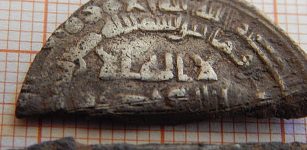 Treasure Trove Of Arabic Coins Dated Back 1,000 Years Unearthed In Graveyard In Poland
Archaeology | Jul 9, 2019
Treasure Trove Of Arabic Coins Dated Back 1,000 Years Unearthed In Graveyard In Poland
Archaeology | Jul 9, 2019 -
 Amazing Victorian Time Capsule – 135-Year-Old Message In A Bottle Found In Edinburgh
Archaeology | Nov 22, 2022
Amazing Victorian Time Capsule – 135-Year-Old Message In A Bottle Found In Edinburgh
Archaeology | Nov 22, 2022 -
 Rare 2,800-Year-Old Assyrian Scarab Amulet Found In Lower Galilee
Archaeology | Feb 24, 2024
Rare 2,800-Year-Old Assyrian Scarab Amulet Found In Lower Galilee
Archaeology | Feb 24, 2024 -
 Zawisza Czarny: Most Famous Polish Knight And The Quest For His Family Home
Featured Stories | Apr 26, 2016
Zawisza Czarny: Most Famous Polish Knight And The Quest For His Family Home
Featured Stories | Apr 26, 2016 -
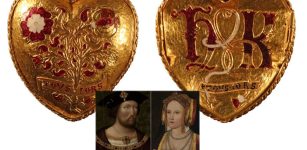 Beautiful Tudor Gold Pendant Linked To Henry VIII And Katherine Of Aragon Discovered By A Metal-Detectorist
Archaeology | Feb 1, 2023
Beautiful Tudor Gold Pendant Linked To Henry VIII And Katherine Of Aragon Discovered By A Metal-Detectorist
Archaeology | Feb 1, 2023 -
 Secrets Of Viking Crystal Sunstones Revealed By Modern Science
Archaeology | Apr 5, 2018
Secrets Of Viking Crystal Sunstones Revealed By Modern Science
Archaeology | Apr 5, 2018 -
 Jolabokaflod – Iceland’s Wonderful Christmas Book Flood Tradition – Exchange Books As Christmas Eve Presents And Spend The Evening Reading
Ancient Traditions And Customs | Dec 21, 2017
Jolabokaflod – Iceland’s Wonderful Christmas Book Flood Tradition – Exchange Books As Christmas Eve Presents And Spend The Evening Reading
Ancient Traditions And Customs | Dec 21, 2017 -
 10 Great Ancient Mysteries Of North America
Featured Stories | Sep 30, 2015
10 Great Ancient Mysteries Of North America
Featured Stories | Sep 30, 2015 -
 Hypocaust – First Central Heating Invented By Ancient Romans 2,000 Years Ago
Ancient History Facts | Jan 14, 2018
Hypocaust – First Central Heating Invented By Ancient Romans 2,000 Years Ago
Ancient History Facts | Jan 14, 2018 -
 Viking Burial Rituals: High Ancient Funeral Pyre Reflected High Social Status
Ancient Traditions And Customs | Mar 13, 2017
Viking Burial Rituals: High Ancient Funeral Pyre Reflected High Social Status
Ancient Traditions And Customs | Mar 13, 2017 -
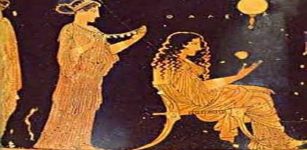 Aglaonice (Aganice): Female Greek Astronomer From Thessaly Was Believed To Be A Witch
Featured Stories | Sep 4, 2019
Aglaonice (Aganice): Female Greek Astronomer From Thessaly Was Believed To Be A Witch
Featured Stories | Sep 4, 2019 -
 Cisterns Unearthed In Metropolis, Turkey Give Insight Into Daily Life Of Its Inhabitants 1,500 Years Ago
Archaeology | Jan 5, 2021
Cisterns Unearthed In Metropolis, Turkey Give Insight Into Daily Life Of Its Inhabitants 1,500 Years Ago
Archaeology | Jan 5, 2021 -
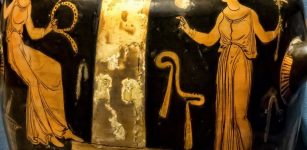 Apulian Secrets: Ancient Burial Rituals Shed Light On A Culture That Left No Written History
Archaeology | Jan 12, 2016
Apulian Secrets: Ancient Burial Rituals Shed Light On A Culture That Left No Written History
Archaeology | Jan 12, 2016 -
 Peculiar Accounts Of Ancient Flying Metallic Dragons And Bells In China And Japan
Chinese Mythology | Dec 27, 2018
Peculiar Accounts Of Ancient Flying Metallic Dragons And Bells In China And Japan
Chinese Mythology | Dec 27, 2018 -
 Aldworth Giants: Knights Who People Tried To Erase From History
Featured Stories | Jul 2, 2015
Aldworth Giants: Knights Who People Tried To Erase From History
Featured Stories | Jul 2, 2015 -
 Clapping To Show Appreciation Is An Ancient And Widespread Behavior
Ancient History Facts | May 16, 2016
Clapping To Show Appreciation Is An Ancient And Widespread Behavior
Ancient History Facts | May 16, 2016 -
 18,000-Year-Old Relics Discovered In Oregon – Oldest Home In North America?
Archaeology | Jul 12, 2023
18,000-Year-Old Relics Discovered In Oregon – Oldest Home In North America?
Archaeology | Jul 12, 2023 -
 Ancient Scriptures With Lost Languages Discovered Inside Saint Catherine’s Monastery On The Sinai Peninsula
Archaeology | Aug 29, 2017
Ancient Scriptures With Lost Languages Discovered Inside Saint Catherine’s Monastery On The Sinai Peninsula
Archaeology | Aug 29, 2017

